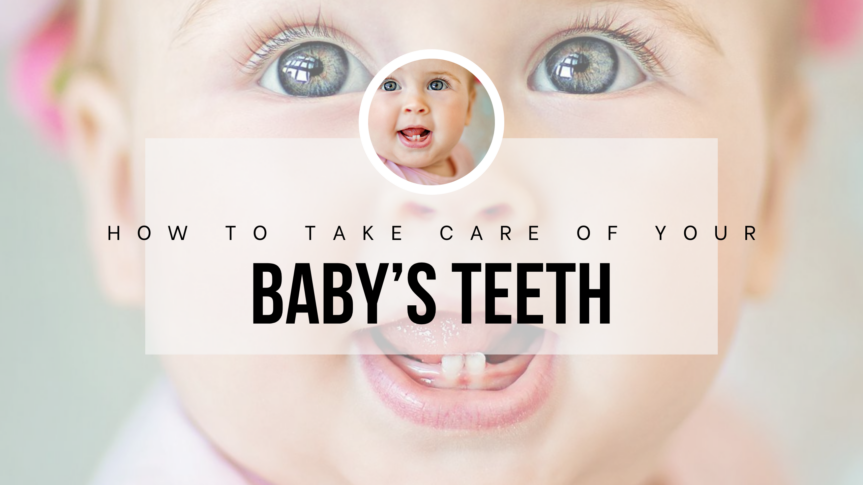After you have spent weeks noticing your baby crying and crying, finally the first little teeth appear. On the years following your baby’s gingival smile will be gradually replaced by deciduous teeth.
Despite their small size, the children’s teeth are just as important. They essentially “shape the space” in which the permanent ones will be stabilized.No healthy milk teeth? The child will then face difficulties with chewing and speaking. That is why the proper care of deciduous teeth is paramount.
Caring for your baby’s gums.
You can start caring for your baby’s gums immediately. But initially, by caring we do not mean using a toothbrush and a toothpaste. Instead, follow these steps:
- Take a soft, damp washcloth or piece of gauze.
- Clean your baby’s gums at least twice a day.
- Mainly clean your baby’s gums after meals and before bedtime.
This will wash away the bacteria and prevent them from sticking to your baby’s gums. Bacteria can leave behind a sticky plaque that harms children’s teeth.
Brushing your baby’s teeth.
When the first baby teeth begin to pop up, you can proceed to use the toothbrush. Select one with:
- soft brush
- small head
- long handle
Initially, just wet the toothbrush. Around the age of one, you can start using a small amount of toothpaste without fluoride. Do not use fluoride toothpaste until your child is at least 2 years old. Brush gently all the teeth of your child – front and back.
You should brush your child’s teeth until they are large enough to hold the toothbrush. Continue to supervise the process until your child can wash without help. This usually occurs at the age of six.
Stay on the lookout for any signs of wear on baby teeth – brown or white stains. If you notice any problem, take your child to a pediatric dentist for examinations.
Even if there isn’t a specific problem, however, your child should go on the first dental visit by the age of one.
Athina Tsiorva


